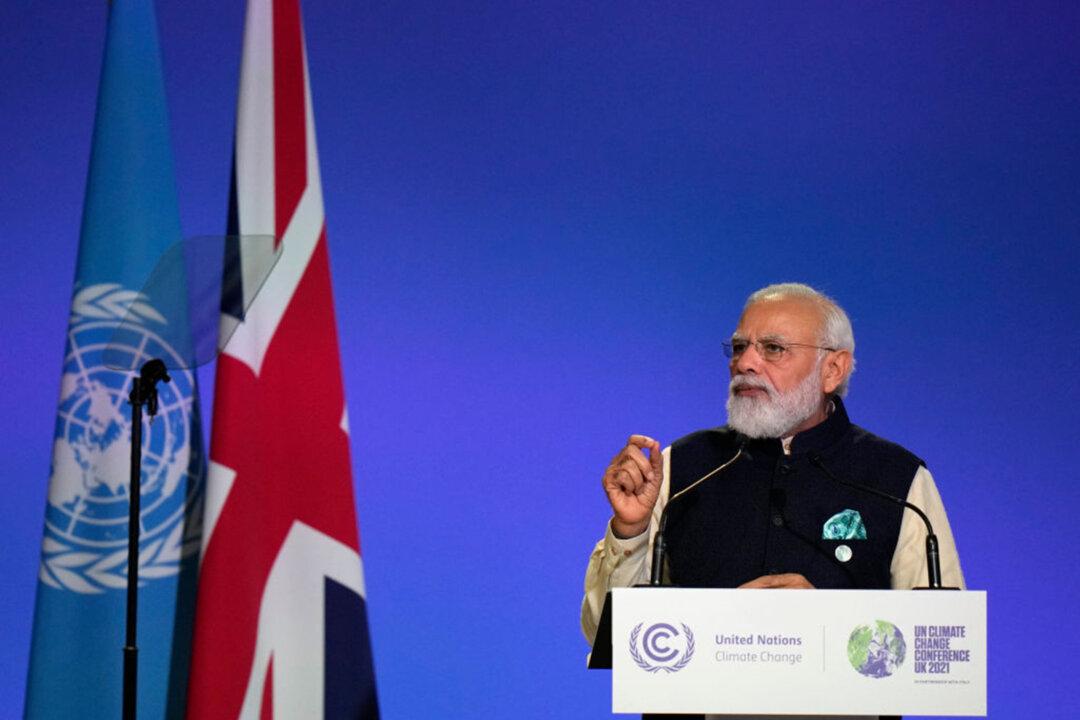India’s prime minister has demanded “strong action” from the British government after Sikh separatists conducted protests and vandalism outside the Indian High Commission in London last month.
Indian Prime Minister Narendra Modi held a phone conversation with his British counterpart, Rishi Sunak, on April 13 and raised the security issue of Indian diplomatic establishments in the United Kingdom.





